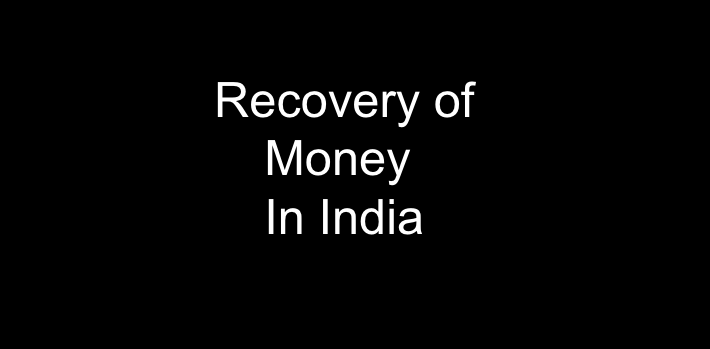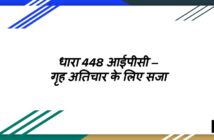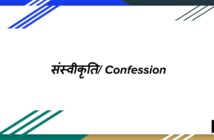One of the most common legal problems in India is the recovery of money in a timely fashion. Usually, a layman faces many issues finding the right solution or way to get their money back. However, if you are ready to fight it, many provisions in the law can help you. This article will cover laws relating to the recovery of money, which will benefit both the Debtor and creditor.

Generally, in a money recovery case, the parties involved can be categorized into the following three types:
Between two or more individuals (For example- When one friend refuses to pay back a personal loan.)
Between an Individual and a Company (For example- When the employer refuses to pay the salary to the employee.)
Between two or more companies (For example- A manufacturing company purchased raw materials or products from another company but refused to pay.)
Firstly, the defaulter should be issued a legal notice requesting outstanding payments, requiring him to pay the arrears within 15 days; if he fails to pay, one can choose to initiate a legal proceeding against him.
Various Options to Recovery the Money
Various legal procedures to recover the money back can fall into one of the following categories:
- Civil remedies
- Criminal proceedings
- Out-of-court options
Civil remedies
Summary Suits [Order 37 CPC]
One of the most common civil remedies in a case for recovery of money is Order 37 of the Civil procedure code, which provides for the summary procedure or summary suit. The summary procedure is a unique legal procedure used to effectively enforce rights through judgments when the court does not hear the defense. This procedure is only applicable to restricted subject matters and is often used when the defendant has no defense.
After a summary suit is filed, the summons will be issued to the defendant. The defendant must appear before the court within ten days, and if he fails to appear, a decree will be awarded in favor of the plaintiff. Even if the defendant appears in court, his appearance is acknowledged if he has any legal reasons or legal defense for non-payment, or else a decree will be granted in favor of the plaintiff. It is possible to file a summary lawsuit under Order 37 of CPC for recovering payments based on a written agreement/contract. It can also be a promissory note, bills of exchange, hundies, or cheques.
Otherwise, it will not be possible to file a lawsuit under Order 37. If the amount is uncertain, ordinary recovery proceedings should be filed.
Ordinary Recovery Suit
If it is not possible to file a lawsuit against Order. 37 CPC due to lack of documentation, the remedy to recover your money is to bring a lawsuit under Order IV of the Civil Procedure Code of 1908 and per pecuniary and monetary jurisdiction.
To initiate a lawsuit, one needs to file a Plaint, which should outline all the case facts and the total amount due to be recovered. (principal with interest). It must be supplemented by documents supporting the claim, such as contracts, correspondence, invoices, Emails, etc. As per the requirement mentioned, applicable court fees must be attached with the plaint. The court can dismiss the plaint under Order 7 Rule 11 CPC in case all the essential procedures have not been completed.
After the filing and its examination as per order 7 Rule 11 CPC, the court will issue summons/notice to the opposite party. At that point, the defendant is required to file a Written Statement as per order 8 CPC within 30 days of receiving the summons, which can be maximum extended to 90 days by the court; after that, his defense will be stuck off. Further, after the framing of issues and commencement of trial, which includes considering evidence and arguments, the suit decree is announced accordingly. Once the decree is pronounced, the execution process can be initiated by either submitting the execution documents in the court that passed the decree or transferring the execution procedure to the court with jurisdiction over the defendant’s assets.
Commercial Courts
With the advent of industrialization, there has been a sudden increase in commercial cases of recovery. To expedite the resolution of commercial disputes, the Government of India has introduced “Commercial Courts, Commercial Division and Commercial Appellate Division of High Courts,” which aims to accelerate the recovery and settlement of commercial disputes like recovery of money, awards, claims & compensation. This particular act stipulates that only when the amount to be recovered is above three lakhs; a lawsuit can be filed in a commercial court. It also provides for the establishment of separate commercial courts to resolve such commercial disputes. The case can be filed in either District or High Court, respectively.
Cheque Bounce (Negotiable Instruments Act, 1881)
In the event when the payment cheque given by the defendant bounces, then the procedure, in this case, would be to send a legal notice to the defaulter within 30 days of receiving the Bank Memo. If the defaulter neglected to make the payment within 15 days of receiving the notice, it is an offense under Section 138 of the Negotiable Instrument Act. One has to file a complaint to the Magistrate within one month of the notice period’s expiry; otherwise, the complaint will be time-barred and only if there is sufficient cause shown to the court so that it can condone the delay in filing.
Criminal proceedings
A person also has an alternative option of initiating criminal proceedings against the defaulter under the Indian Penal Code, 1860. The only drawback is that criminal proceedings usually take a long time to conclude and recover your money. One can file a case for –
- Cheating (Section 415 of IPC)
- Criminal breach of trust (Section 405 of IPC)
- Criminal Misappropriation (Section 403 IPC)
- Mischief (Section 425 IPC)
Legal Options in Case the defaulter is a Company
In case the defaulter of the payment is a company, a lawsuit for debt recovery can be filed before NCLT under Insolvency and Bankruptcy Code, 2016 against corporate Debtor (company only) where the company registered office is situated.
A suit can also be filed under The Companies Act under Section 127 (Contract Enforcement), Section 212, 272, and Section 447 and 451.
Even Section 17 (Fraud), 18 (Misrepresentation), and 73 (Compensation for loss or damage caused by the breach of contract.) of the Indian Contract Act, 1872 can be used for recovery of money.
Out-of-court options
Out of court settlements include ways like arbitration, negotiations, or conciliation. These methods are the fastest and most economical ways to recover your money, but the only essential is that the opposite party must be willing to settle the matter. One can even include an arbitration clause in its contract.
Conclusion
Whenever one faces a situation of recovery of money, they can opt for any one of the above-mentioned methods. As a preventive measure, one has to have a fully documented and signed contract/promissory note before then money is lent. The signed contract should have clear pre-agreed terms and should mention the principal, the interest rate to be paid, the term, the date of the loan, the amount of installment, and the date of repayment.

